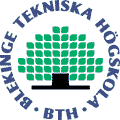FUGA - The Fun of Gaming: Measuring the Human Experience of Media Enjoyment
Project funded by the European Commission under the 6th
Framework Programme:
New and Emerging Science and Technology (NEST)
Contract: FP6-NEST-28765
Duration: May 1, 2006 - April 30, 2009
Contact: Dr. Niklas Ravaja (Coordinator)
FUGA OBJECTIVE
Digital (computer and video) game playing is the fastest-growing form of entertainment media,* and enormous resources are invested in the creation of new digital games. In addition to entertainment, digital games are more and more used for therapeutic, educational, and work-related purposes. Established methods to measure gaming experience with high temporal resolution are lacking, however.
The main objective of the FUGA project was to create novel methods and
improve existing measures in order to examine how the different aspects
of gaming experience (e.g., different emotions and cognitions) can be
assessed comprehensively with high temporal resolution. The operational
goals of FUGA include the establishment of the construct validity, reliability,
and predictive validity of the game experience measures that are based
on the different measurement techniques (e.g., psychophysiological recordings,
brain imaging). A further goal is to develop a prototype of an emotionally
adaptive game. The innovative measurement approach provided by FUGA
can be applied when designing new digital games for different purposes.
* PricewaterhouseCoopers, 2006. See more information of gaming demographics.
FUGA project has been completed!
Thanks for all who cooperated. Here is the publishable final activity report (pdf). For further activities, see individual partners' web sites. From April 2009 this site is no longer updated.
Second FUGA mini-symposium held
The second FUGA mini-symposium was held at the Helsinki Institute for Information Technology (HIIT) in Espoo, Finland, on 3 April, 2009. At the symposium, the FUGA researchers presented their results from the project.
First FUGA mini-symposium held
The FUGA mini-symposium was held at the Helsinki Institute for Information Technology (HIIT) in Espoo, Finland, on 24 April, 2008. At the symposium, the FUGA researchers from different European countries presented their latest findings.



